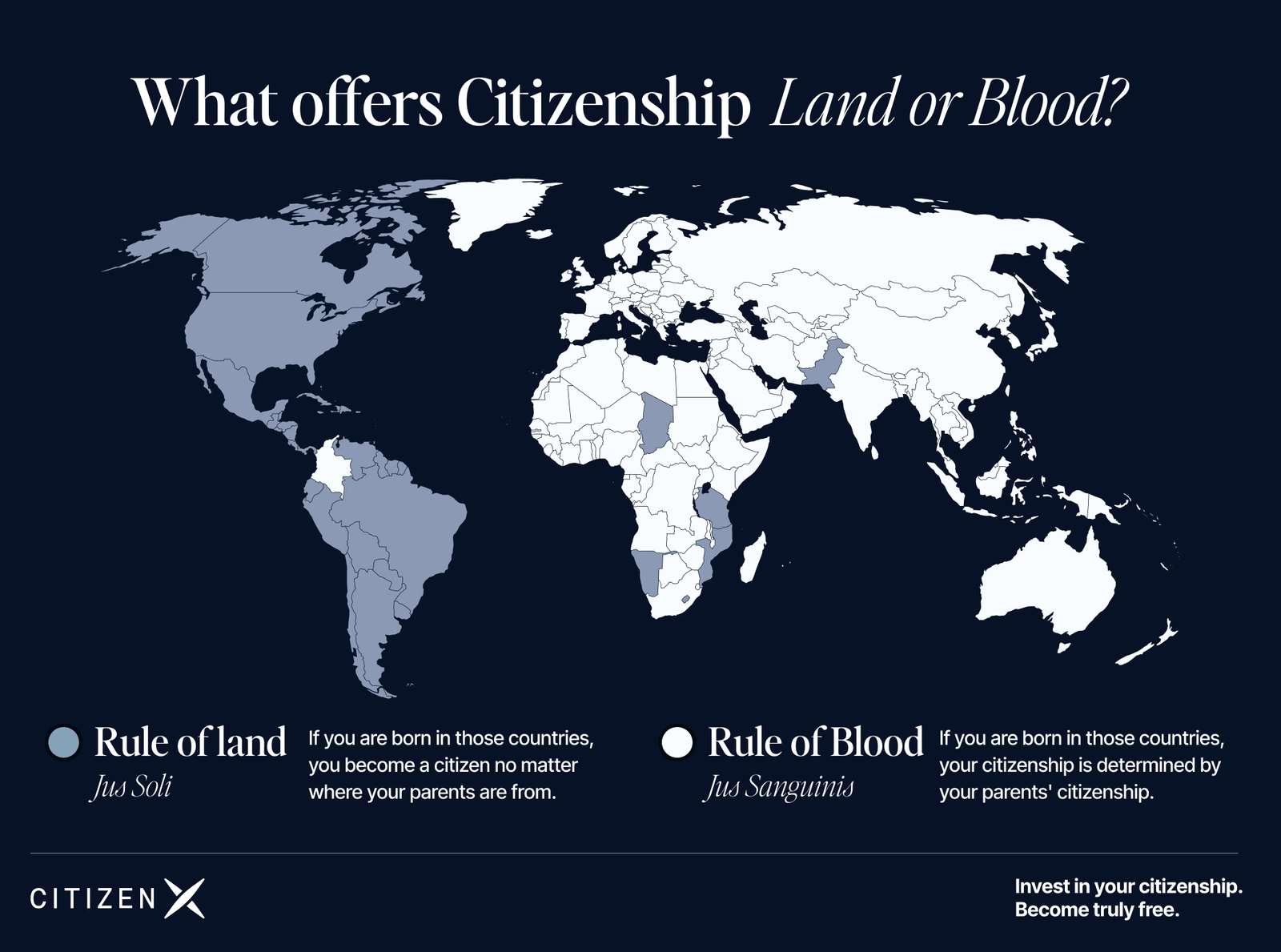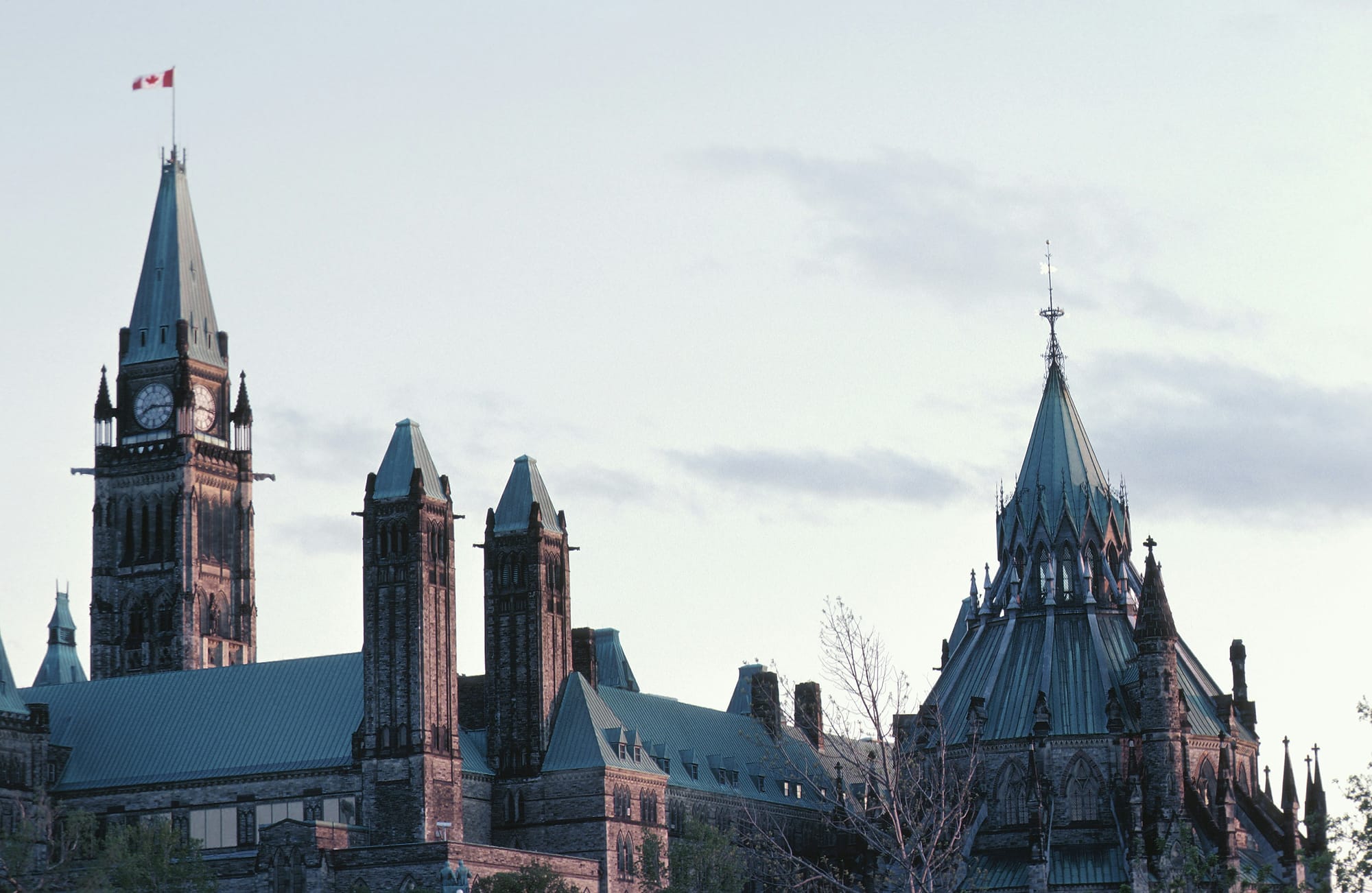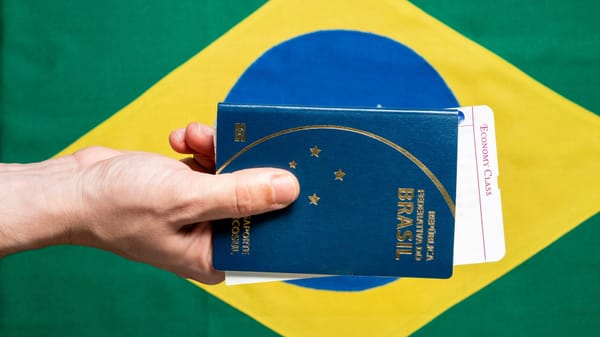Understanding Birthright Citizenship: Jus Soli vs. Jus Sanguinis
In 2025, birthright citizenship remains a complex and often debated topic in immigration law, particularly in the United States. The concept encompasses two primary principles: jus soli ("right of soil") and jus sanguinis ("right of blood"), which determine how citizenship is granted at birth.

The Principle of Jus Soli in the Americas
Jus soli, enshrined in the 14th Amendment of the U.S. Constitution, automatically grants citizenship to individuals born on U.S. soil. This principle, established after the Civil War, states that "all persons born or naturalized in the United States" are citizens.
Currently, 33 countries worldwide maintain some form of jus soli citizenship, with the majority located in the Americas.
- North America: United States, Canada, Mexico
- South America: Argentina, Brazil, Chile, Peru, Uruguay, Venezuela
- Central America and Caribbean: Costa Rica, Panama, El Salvador, Grenada, Antigua and Barbuda
Recent executive orders by the second Trump administration have resurfaced the conversation around birthright citizenship in the USA.
Jus Sanguinis and Citizenship Trends Worldwide
In contrast, jus sanguinis determines citizenship based on parental nationality, regardless of birthplace. This system is prevalent in Europe and Asia, where immigration policies tend to be more restrictive. The distinction between these two principles has become increasingly significant as global migration patterns evolve.
Key Takeaway: While the United States maintains birthright citizenship, only about 30 countries worldwide still practice unconditional jus soli, making it relatively rare globally.
Legal Challenges and Contemporary Debates
Recent years have seen numerous legal challenges to birthright citizenship, particularly regarding children of undocumented immigrants. The Trump administration's attempts to end birthright citizenship through executive order faced significant opposition from rights groups and legal experts. In 2024, federal judges, including District Judge Deborah Boardman in Maryland, continued to uphold the constitutional right to birthright citizenship.

Birth Tourism and Policy Implications
The phenomenon of birth tourism has sparked renewed debate about birthright citizenship. Some pregnant women deliberately travel to countries with jus soli policies to secure citizenship for their children. This practice has led to discussions about potential reforms, particularly in cases involving foreign diplomats and temporary visitors.
Notable statistics include:
- An estimated 33,000 births to foreign tourists in the U.S. annually
- Approximately 4.4 million U.S.-born children with at least one undocumented parent
Exceptions and Special Considerations
Even in countries practicing jus soli, certain exceptions exist. For example, children of foreign diplomats or those without legal immigration status may face different circumstances. The U.S. Supreme Court has repeatedly affirmed birthright citizenship through cases like Wong Kim Ark, while establishing specific parameters for its application.
Understanding the distinction between jus soli and jus sanguinis is crucial for immigrants planning their families' futures, as it directly impacts their children's citizenship rights and opportunities.
As immigration patterns continue to evolve and global mobility increases, the debate over birthright citizenship remains central to discussions about national identity, immigration policy, and constitutional rights in the United States and beyond.
33 Countries with birthright citizenship
The following 33 countries currently maintain birthright citizenship (jus soli):
| North America | |
| 1 | Canada |
| 2 | Mexico |
| 3 | United States |
| Central America | |
| 4 | Belize |
| 5 | Costa Rica |
| 6 | El Salvador |
| 7 | Guatemala |
| 8 | Honduras |
| 9 | Nicaragua |
| 10 | Panama |
| Caribbean | |
| 11 | Antigua and Barbuda |
| 12 | Barbados |
| 13 | Cuba |
| 14 | Dominica |
| 15 | Grenada |
| 16 | Jamaica |
| 17 | Saint Kitts and Nevis |
| 18 | Saint Lucia |
| 19 | Saint Vincent and the Grenadines |
| 20 | Trinidad and Tobago |
| South America | |
| 21 | Argentina |
| 22 | Bolivia |
| 23 | Brazil |
| 24 | Chile |
| 25 | Ecuador |
| 26 | Guyana |
| 27 | Paraguay |
| 28 | Peru |
| 29 | Uruguay |
| 30 | Venezuela |
| Africa | |
| 31 | Gambia |
| 32 | Lesotho |
| Oceania | |
| 33 | Tuvalu |
The United States and the 14th Amendment: Historical context from Civil War to present day

The 14th Amendment to the U.S. Constitution stands as one of the most significant legal developments in American history, fundamentally reshaping the concept of citizenship and civil rights in the United States.
Ratified in 1868 in the aftermath of the Civil War, this constitutional amendment continues to influence modern debates about immigration, citizenship, and civil rights.
Origins and Post-Civil War Context
The 14th Amendment emerged from the ashes of the Civil War as part of the Reconstruction Amendments. Its primary purpose was to overturn the infamous Dred Scott decision of 1857, which had denied citizenship to African Americans. The amendment's citizenship clause explicitly grants citizenship to "all persons born or naturalized in the United States," establishing the principle of jus soli(birthright citizenship) as a constitutional right.
The 14th Amendment transformed American society by establishing birthright citizenship and equal protection under the law, principles that continue to shape legal debates today.
Landmark Supreme Court Decisions
Several crucial Supreme Court cases have reinforced and clarified the 14th Amendment's provisions.
The 1898 case of United States v. Wong Kim Ark stands as a pivotal decision, where the U.S. Supreme Court confirmed that a child born in the United States to noncitizen parents was automatically granted U.S. citizenship. This ruling established a precedent that continues to influence modern interpretations of birthright citizenship.
Modern Challenges and Debates
In recent years, particularly during the Trump administration, the scope of birthright citizenship has faced renewed scrutiny.
President Donald Trump's executive order attempting to end birthright citizenship for children of illegal immigrants sparked intense legal challenges and constitutional debates. Various rights groups and legal experts have defended the traditional interpretation of the 14th Amendment, while others have advocated for more restrictive interpretations.
- Challenges to birth tourism from countries without birthright citizenship
- Debates over children of undocumented immigrants
- Questions regarding children of foreign diplomats
- Issues surrounding temporary visitors and permanent residents
Global Context and Comparative Analysis
The United States shares its approach to birthright citizenship with numerous other nations, particularly in the Americas. Among the countries that maintain unconditional jus soli are:
- Canada and Mexico in North America
- Brazil, Argentina, and Chile in South America
- Caribbean nations like Antigua and Barbuda, Grenada, and Trinidad and Tobago
This positions the United States within a broader hemispheric tradition of inclusive citizenship policies, though global trends show many nations moving away from unrestricted birthright citizenship.
Contemporary Legal Developments
Recent legal challenges and court decisions continue to shape the interpretation of the 14th Amendment. Federal judges, including District Judge Deborah Boardman in Maryland, have addressed various aspects of citizenship rights and immigration status. These cases often involve complex intersections of constitutional law, immigration policy, and international relations.
Understanding the historical context of the 14th Amendment is crucial for engaging in informed discussions about modern citizenship debates and immigration policy.
As the United States continues to grapple with immigration reform and citizenship policies, the 14th Amendment remains a cornerstone of American constitutional law, influencing everything from civil rights litigation to immigration policy.
Its principles continue to evolve through judicial interpretation and public discourse, demonstrating the living nature of constitutional law in American democracy.
North American Birthright Citizenship: Comparing U.S., Canada, and Mexico's Policies
In North America, the United States, Canada, and Mexico all practice jus soli (birthright citizenship), though each country has developed distinct approaches to implementing this principle. Understanding these differences is crucial for comprehending immigration policies across the continent.
United States Birthright Citizenship Framework
The United States grants citizenship through the 14th Amendment of the Constitution, which states that all persons born on U.S. soil are citizens. This policy, established after the Civil War, has faced various challenges, including recent attempts during the Trump administration to end birthright citizenship through executive order.
Key exceptions to U.S. birthright citizenship include:
- Children of foreign diplomats
- Children of enemy forces in hostile occupation
- Children born on foreign ships in U.S. waters
Canadian Approach to Birthright Citizenship

Canada maintains a similar but more recently modified approach to birthright citizenship. In 2009, Canada implemented significant changes to address concerns about birth tourism. Under current Canadian law, children born on Canadian soil receive automatic citizenship, with notable exceptions:
Children do not receive citizenship if both parents are:
- Foreign government representatives
- Employees of foreign governments
- Non-citizens without permanent resident status
Key Takeaway: Canada's policy represents a middle ground between unrestricted birthright citizenship and more restrictive approaches, attempting to balance national security with humanitarian considerations.
Mexican Birthright Citizenship System
Mexico's approach to birthright citizenship aligns closely with other Latin American nations. The Mexican Constitution guarantees citizenship to all persons born within Mexican territory, regardless of parents' immigration status. This policy reflects Mexico's historical commitment to jus soli principles shared by many countries in South America.
Comparative Analysis and Recent Developments
Recent statistics and developments across North America reveal interesting trends:
- The U.S. records approximately 300,000 births to unauthorized immigrants annually
- Canada reports roughly 4,000 births to non-resident mothers yearly
- Mexico maintains the most straightforward policy with fewer restrictions
Legal challenges continue to shape these policies. In the United States, federal judges, including District Judge Deborah Boardman in Maryland, have ruled on cases challenging attempts to restrict birthright citizenship. Meanwhile, Canadian courts have upheld their modified approach, and Mexico's system remains largely unchanged.
Pro Tip: Individuals seeking to understand their citizenship rights should consult immigration attorneys familiar with the specific nuances of each country's policies, as interpretations and applications can vary significantly.
The ongoing debate surrounding birthright citizenship reflects broader discussions about immigration, national identity, and human rights. While all three North American nations maintain jus soli principles, their varying approaches demonstrate different solutions to common challenges in modern immigration policy.
Looking ahead, these policies may continue to evolve as nations address emerging challenges such as birth tourism, unauthorized immigration, and changing global mobility patterns. The experiences of these three countries offer valuable insights for other nations considering modifications to their citizenship laws.
South American Nations Leading in Birthright Citizenship Rights

South America stands uniquely in the world with what many would call broadly open citizenship policies, with nearly all countries in the region embracing jus soli principles. This approach to birthright citizenship has created a unique landscape of immigration and citizenship rights across the continent.
Argentina and Brazil: Pioneering Birthright Citizenship
Argentina and Brazil have emerged as leaders in implementing comprehensive birthright citizenship policies. Argentina's constitution, dating back to 1853, guarantees citizenship to all individuals born on Argentine soil, regardless of their parents' immigration status. Similarly, Brazil enshrined this right in its 1988 constitution, making it one of the most inclusive citizenship frameworks in the region.
Unlike the ongoing debates in the United States regarding the 14th Amendment, South American nations have maintained stable birthright citizenship policies with minimal controversy.
Progressive Policies in Chile, Uruguay, and Peru
Recent developments in Chile, Uruguay, and Peru have strengthened their commitment to birthright citizenship. Chile's 2022 constitutional reforms reaffirmed jus soli rights, while Uruguay maintains one of the most liberal citizenship policies in the region. Peru's approach allows children of both documented and undocumented immigrants to receive automatic citizenship upon birth.
Venezuela and Colombia: Addressing Migration Challenges
Despite political tensions, Venezuela maintains birthright citizenship policies, though recent economic challenges have led to significant outward migration. The country's approach to citizenship has remained consistent even during periods of political upheaval.
- Over 90% of South American nations practice unconditional jus soli
- Approximately 5.6 million Venezuelan migrants have benefited from neighboring countries' citizenship policies
- An estimated 200,000 children receive citizenship through birthright annually in Brazil alone
Impact on Regional Migration and Integration
South American birthright citizenship policies have significantly influenced regional migration patterns and integration efforts. Unlike the debates surrounding birth tourism in the United States and Canada, South American nations have generally maintained more open policies.
South American citizenship rights often extend beyond birthright to include simplified naturalization processes for permanent residents.
Comparison with North American Policies
While the United States continues to debate aspects of the 14th Amendment and Canada maintains specific restrictions, South American nations have generally avoided such controversies. Their approach contrasts sharply with recent discussions in North America about ending birthright citizenship or limiting its scope.
The stability of South American birthright citizenship policies has contributed to more predictable immigration patterns and stronger regional integration. These nations have demonstrated that inclusive citizenship policies can coexist with effective immigration management, providing valuable lessons for other regions grappling with similar issues.
As global migration patterns continue to evolve, South America's commitment to birthright citizenship rights serves as an important model for other regions considering citizenship policy reforms. The continent's experience suggests that inclusive citizenship policies can strengthen social cohesion while respecting human rights and dignity.
Caribbean Countries Maintaining Strong Birthright Citizenship Traditions
The Caribbean region stands as a stronghold of birthright citizenship, with numerous island nations maintaining robust jus soli policies that grant automatic citizenship to children born within their territories. This commitment to birthright citizenship reflects the region's historical values and its role in the Western Hemisphere's citizenship traditions.
Leading Caribbean Nations in Birthright Citizenship
Several Caribbean countries have established themselves as exemplars of comprehensive birthright citizenship policies:
- Antigua and Barbuda: Maintains unrestricted jus soli citizenship since its independence in 1981
- Grenada: Offers automatic citizenship to all children born on its soil, with limited exceptions for children of diplomats
- Trinidad and Tobago: Provides robust constitutional protections for birthright citizenship, similar to the U.S. 14th Amendment
- Barbados: Continues its strong tradition of granting citizenship to all children born within its borders
Legal Framework and Implementation
Caribbean nations have developed sophisticated legal frameworks to administer their birthright citizenship policies.
For instance, Saint Kitts and Nevis has implemented a streamlined registration system that efficiently processes citizenship claims while maintaining security protocols to prevent abuse.
The Saint Vincent and the Grenadines constitution explicitly protects birthright citizenship rights, ensuring that children born within their territories receive immediate recognition as citizens.
Unlike some nations that have restricted birthright citizenship in recent years, Caribbean countries maintain some of the world's most inclusive jus soli policies, contributing to their multicultural identity and demographic diversity.
Regional Cooperation and Harmonization
The Caribbean Community (CARICOM) has played a crucial role in harmonizing citizenship policies across the region. Through collaborative efforts, member states have developed consistent approaches to addressing common challenges, such as:
- Birth tourism management
- Documentation requirements
- Registration procedures
- Rights of children born to migrants
Impact on Regional Migration and Development
According to USAID reports, the Caribbean's inclusive citizenship policies have contributed significantly to regional development. Studies show that second-generation immigrants in Caribbean nations with strong birthright citizenship policies demonstrate higher rates of economic integration and social mobility compared to regions with more restrictive policies.
Challenges and Future Outlook
While Caribbean nations remain committed to birthright citizenship, they face modern challenges including:
- Managing increased regional migration
- Addressing concerns about birth tourism
- Maintaining security while preserving accessibility
- Balancing citizenship rights with economic considerations
Despite these challenges, Caribbean countries continue to uphold their birthright citizenship traditions, recognizing them as fundamental to their national identities and regional stability. Their experience provides valuable lessons for other nations grappling with citizenship policy reforms, demonstrating that inclusive citizenship policies can coexist with effective governance and national security measures.
Pro Tip: Individuals seeking information about Caribbean citizenship should consult official government websites or legal professionals, as specific requirements and procedures may vary by country.
Legal Challenges and Political Debates: Trump Administration's Impact on Birthright Citizenship
During the Trump administration (2017-2021), birthright citizenship faced unprecedented scrutiny and legal challenges, marking one of the most contentious periods in the interpretation of the 14th Amendment since its ratification after the Civil War.

Trump's Executive Order and Constitutional Controversy
In 2020, President Donald Trump attempted to challenge birthright citizenship through executive action, proposing to end automatic citizenship for children born on U.S. soil to noncitizens and undocumented immigrants. This move sparked intense debate among constitutional scholars and rights groups about the president's authority to modify a right enshrined in the 14th Amendment.
Key Legal Point: The 14th Amendment states that "all persons born or naturalized in the United States, and subject to the jurisdiction thereof, are citizens of the United States." This has traditionally granted U.S. citizenship to anyone born on U.S. soil, with limited exceptions for children of foreign diplomats.
Notable Legal Challenges and Court Decisions
Several significant legal challenges emerged during this period:
- In Maryland, District Judge Deborah Boardman presided over a case challenging the constitutionality of Trump's executive order
- Multiple federal judges in states including Washington and California issued preliminary injunctions against the implementation of restrictive birthright citizenship policies
- Rights groups filed numerous lawsuits arguing that any modification to birthright citizenship would require a constitutional amendment rather than executive action
Birth Tourism and Policy Responses
The Trump administration particularly focused on addressing "birth tourism," implementing stricter visa policies for pregnant women suspected of traveling to the United States specifically to give birth. Statistics from the State Department estimated that approximately 33,000 babies were born to foreign tourists in 2019, prompting policy debates about the practice.
International Comparisons and Policy Impact
While the United States debated restricting birthright citizenship, other nations in the Americas maintained or strengthened their jus soli policies. For example:
- Canada continued its birthright citizenship policy with minor restrictions for children of foreign diplomats
- Mexico maintained its constitutional guarantee of citizenship to all children born on Mexican soil
- Argentina and Brazil reinforced their commitment to unrestricted jus soli principles
Legislative and Social Impact
The Trump administration's challenges to birthright citizenship had lasting effects on immigration policy discussions and social discourse. Several key developments included:
- Multiple congressional proposals to modify the interpretation of the 14th Amendment
- Increased scrutiny of immigration status at hospitals and healthcare facilities
- Growing debates about the economic impact of birthright citizenship on public services
Important Context: The U.S. Supreme Court previously affirmed birthright citizenship in the landmark 1898 case of Wong Kim Ark, establishing that a child born in the United States to non-citizen parents was automatically a U.S. citizen.
Despite the Trump administration's efforts, birthright citizenship remains firmly established in U.S. law, with any changes requiring either a new Supreme Court interpretation or a constitutional amendment. The debate, however, has fundamentally altered the political discourse surrounding immigration and citizenship rights in America.
As of 2025, the United States continues to be among the 33 countries that maintain birthright citizenship, joining nations like Canada, Mexico, and most of South America in preserving this fundamental right. The legal challenges during the Trump era have nonetheless created lasting implications for how birthright citizenship is discussed and defended in contemporary American political discourse.
Birth Tourism and Immigration Status: Contemporary Challenges to Citizenship Laws
Birth tourism has emerged as a significant challenge to birthright citizenship laws across the Americas, particularly in the United States and Canada. This practice, where pregnant women deliberately travel to countries with jus soli policies to secure citizenship for their children, has sparked intense debate about the modern interpretation of constitutional rights and immigration status.
Understanding Birth Tourism: Scale and Impact
In recent years, the practice of birth tourism has grown significantly. According to U.S. Center for Immigration Studies data, approximately 33,000 birth tourists visit the United States annually, contributing to what some observers call "citizenship tourism." This phenomenon particularly affects major cities like Seattle, Miami, and Los Angeles, where specialized birth tourism operations have been documented.
Legal Framework and Challenges
The intersection of birth tourism with the 14th Amendment has created complex legal scenarios. While the Constitution grants automatic citizenship to those born on U.S. soil, several legal challenges have emerged:
- In 2020, the Trump administration attempted to restrict birth tourism through visa regulations
- Federal judges in Maryland and other jurisdictions have ruled on cases involving birth tourism
- Immigration status of parents has become a central point of legal debate
North American Response to Birth Tourism
Different countries have developed varying approaches to address birth tourism. Canada, which also follows jus soli principles, has implemented stricter regulations for birth tourists, while Mexico maintains relatively open policies but with increased documentation requirements.
Key Takeaway: Birth tourism presents a unique challenge to traditional citizenship laws, requiring countries to balance constitutional rights with immigration control measures.
Economic and Social Implications
The practice of birth tourism has significant economic and social implications:
- Healthcare systems face increased pressure from non-resident births
- Local communities experience housing market impacts in popular birth tourism destinations
- Questions arise about long-term social security and public benefit access
Policy Responses and Future Directions
Countries with birthright citizenship are developing nuanced responses to birth tourism. Nations like Argentina, Brazil, and Chile maintain strong jus soli traditions while implementing verification procedures to prevent abuse. The United States continues to debate potential policy changes, with proposals ranging from constitutional interpretation adjustments to enhanced visa screening procedures.
Recent legal challenges, including cases heard by District Judge Deborah Boardman and other federal judges, have highlighted the complexity of balancing constitutional rights with immigration control. Rights groups argue that restrictions on birth tourism could infringe upon the fundamental principles of the 14th Amendment, while opponents contend that modern immigration patterns require updated interpretations of citizenship laws.
Understanding the distinction between legitimate travel and birth tourism often depends on intent, documentation, and length of stay - factors that immigration officials increasingly scrutinize.
As countries continue to grapple with these challenges, the international community watches closely to see how traditional birthright citizenship principles will adapt to contemporary migration patterns and economic globalization. The ongoing debate reflects the delicate balance between maintaining constitutional principles and addressing modern immigration challenges.
The Future of Birthright Citizenship: Global Trends and Policy Evolution
As nations grapple with evolving immigration patterns and demographic shifts, the future of birthright citizenship stands at a critical crossroads. This examination of emerging trends and policy developments reveals how countries are adapting their citizenship laws to address modern challenges while maintaining constitutional integrity.
Emerging Global Patterns in Citizenship Rights
Recent data shows that only 33 countries worldwide maintain pure jus soli citizenship policies, with the Americas being the primary stronghold. Notable examples include the United States, Canada, and most South American nations like Brazil, Argentina, and Chile. However, several European countries that previously offered unrestricted birthright citizenship have moved toward modified systems that require at least one parent to be a legal resident.
Technology's Impact on Citizenship Verification
Digital innovations are revolutionizing how nations verify and process citizenship claims. The U.S. State Department has implemented advanced systems to detect birth tourism attempts, while countries like Panama and Costa Rica have developed integrated databases to track citizenship status across generations.
Experts predict that blockchain technology may soon play a crucial role in verifying citizenship claims and preventing document fraud.
Legislative Trends and Constitutional Challenges
Several significant developments are shaping the future of birthright citizenship:
- Increased scrutiny of birth tourism, particularly in countries like the United States and Canada
- Growing debate over citizenship rights for children of temporary visa holders
- Constitutional challenges to executive orders attempting to limit birthright citizenship
- Enhanced verification requirements for citizenship documentation
Projected Policy Changes and International Cooperation
International cooperation is becoming increasingly important in managing citizenship policies. The United States, Canada, and Mexico are developing coordinated approaches to address shared challenges, while South American nations continue to maintain strong birthright citizenship traditions through regional agreements.
Climate Migration and Citizenship Rights
An emerging consideration is the impact of climate migration on citizenship policies. As environmental displacement increases, countries may need to adapt their citizenship laws to address the needs of climate refugees, particularly in vulnerable regions like the Caribbean and coastal areas.
Frequently Asked Questions
Will the United States end birthright citizenship?
Any change to birthright citizenship in the U.S. would require a constitutional amendment to the 14th Amendment, making it highly unlikely in the near future.
How are countries adapting to birth tourism?
Nations are implementing stricter visa requirements for pregnant women and enhancing monitoring systems while maintaining constitutional obligations.
What role will technology play in future citizenship verification?
Digital systems, blockchain, and biometric verification are expected to become standard tools for citizenship verification and documentation.
The future of birthright citizenship reflects a complex balance between maintaining constitutional rights and addressing modern challenges.
While the Americas remain committed to jus soli principles, technological advances and evolving migration patterns continue to shape policy development. As nations adapt to new realities, the fundamental right to citizenship by birth remains a cornerstone of democratic societies, even as implementation methods evolve to meet contemporary challenges.

